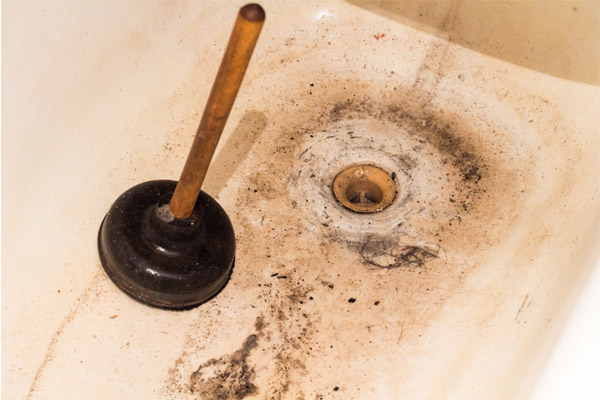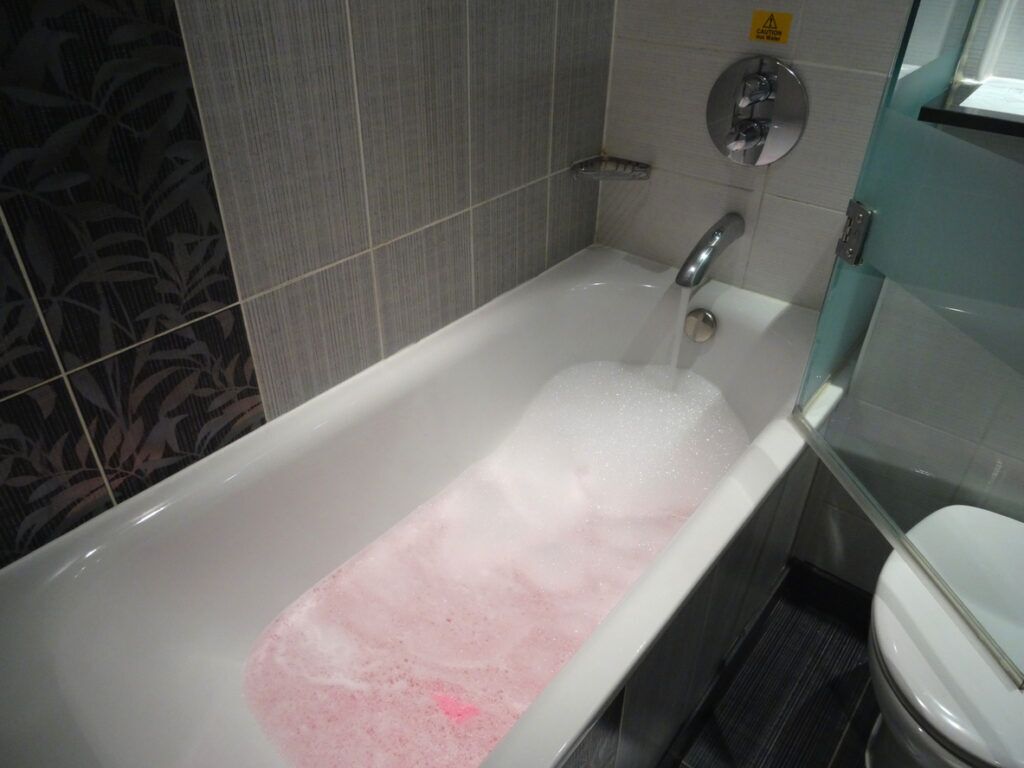Examining the Causes of Drainage Backflow in the Bathtub
Examining the Causes of Drainage Backflow in the Bathtub
Blog Article
Everyone seems to have his or her own ideas with regards to Why sewage is coming up through your bathtub.

Sewage back-up in the tub can be an upsetting and unsanitary issue for any type of home owner. Not only is it inconvenient, however it also postures severe wellness dangers and indicates underlying concerns with the plumbing system. Understanding why sewer is coming up via the bathtub is vital for taking proper action to resolve the issue properly.
Introduction to the Issue
Usual Factors for Sewage Backup
Obstructions in the Sewage System Line
One of the most typical sources of sewage back-up is a clog in the drain line. This can take place because of the build-up of particles, oil, or foreign objects in the pipelines, stopping appropriate circulation and creating sewer to support into your bath tub.
Tree Root Breach
Tree roots looking for wetness and nutrients can infiltrate sewer lines via little fractures or joints. In time, these roots can expand and increase, triggering significant damages to the pipelines and causing sewage backup problems.
Recognizing the Trouble
When sewer starts backing up into the bathtub, it's a clear indication of a problem with the drainage system. The wastewater that ought to be moving away from your home is rather locating its way back into your space, which can bring about significant damages and carcinogen.
Potential Reasons
Several factors can add to sewage back-up in the tub. From obstructions in the sewage system line to concerns with the plumbing infrastructure, recognizing the root cause is important for discovering a solution.
Aging Framework
Older homes might have obsoleted plumbing systems that are much more prone to deterioration, fractures, and damage. As pipes age, they end up being more vulnerable to leaks and clogs, increasing the chance of sewer back-up events.
Heavy Rainfall or Flooding
During durations of heavy rainfall or flooding, the drain system may come to be overloaded with excess water, causing backups and overflows. This can lead to sewage supporting into tubs and other fixtures inside the home.
Indications of Sewage Back-up
Foul Odors
Unpleasant odors originating from drains pipes or components, especially in the washroom, might suggest sewer backup problems. These odors are often solid and persistent, indicating a problem that calls for immediate attention.
Slow Draining Fixtures
Bath tubs, sinks, and toilets that drain gradually or not at all could be experiencing sewage back-up. If multiple fixtures are affected at the same time, it's likely that the problem stems from a common factor, such as the main sewer line.
Gurgling Sounds
Unusual gurgling or bubbling noises coming from drains when water is running in other places in your house are a measure of air caught in the plumbing system. This air buildup can result from sewer back-up and must be explored without delay.
Health Threats Associated with Sewer Back-up
Contamination of Water System
Sewage back-up can contaminate the water supply in your house, positioning a significant health threat to you and your family. Direct exposure to infected water can result in gastrointestinal problems, skin infections, and various other health problems.
Mold Development
Wetness from sewage back-up can create ideal problems for mold development in your home. Mold spores can exacerbate breathing issues and cause allergic reactions in delicate people, making timely cleanup essential.
Spread of Illness
Sewage has unsafe microorganisms, infections, and bloodsuckers that can cause a range of illness, including hepatitis, cholera, and gastroenteritis. Coming into contact with sewer or contaminated surface areas puts you in jeopardy of infection.
Tidying up After Sewer Backup
Disinfection Procedures
Completely decontaminate and disinfect impacted areas after sewage back-up to remove dangerous germs and protect against mold and mildew development. Use ideal cleaning items and safety equipment to make certain risk-free and reliable cleaning.
Restoration of Impacted Areas
Fix any type of damages to floor covering, wall surfaces, or components caused by sewage back-up. Depending on the extent of the damages, you might require to replace carpeting, drywall, or other products to restore your home to its pre-loss condition.
Immediate Actions to Take
Turning Off Water Supply
In case of sewer back-up, it's important to turn off the water system to avoid additional contamination and damage. Situate the primary water shutoff valve in your home and shut it off up until the concern can be dealt with.
Contacting a Professional Plumber
Handling sewage back-up is not a do it yourself work. Contact a qualified plumber with experience in managing sewage-related concerns to evaluate the circumstance and carry out essential repair services or cleanings.
Staying Clear Of Contact with Contaminated Water
Until the sewage backup is solved, stay clear of contact with contaminated water to stop the spread of microorganisms and virus. Put on safety equipment if you need to remain in the afflicted area and clean your hands extensively afterward.
Preventive Measures
Regular Upkeep of Sewage System Lines
Schedule normal inspections and maintenance of your sewage system lines to determine and address prospective concerns prior to they rise into major problems. This can include cleaning particles, examining for tree origin invasion, and fixing any kind of broken pipes.
Installing Bayou Shutoffs
Take into consideration installing bayou shutoffs in your plumbing system to prevent sewer from receding into your home during durations of heavy rainfall or flooding. These valves immediately close when water starts backing up, securing your residential or commercial property from contamination.
Proper Disposal of Family Waste
Avoid flushing anything besides toilet paper and human waste down the bathroom to avoid clogs and obstructions in the sewage system line. Dispose of grease, oil, and various other home chemicals properly to decrease the danger of plumbing troubles.
Why Is Water Backing Up in My Bathtub When I Flush My Toilet?
What to do about a sewer line clog
First, don’t bother with plunging. No amount of plunging will dislodge the clog in a sewer line. The clog is too far away. Plungers are for clogs in the toilet itself, not the sewer line. Plus, the most likely causes of a sewer clog are:
Tree roots Flushed toys or feminine products Grease buildup Those items don’t move easily. And in the case of tree roots, the roots need to be cut out of the pipe and the pipe will need to be repaired.
You’ll need a closet auger. A closet auger is a type of plumber’s snake with a protective cover to keep from scratching the delicate porcelain toilet. If the clog is further down, you may need to remove the toilet or use one of your cleanouts to get to the clog.
We also recommend doing a video inspection of the drain to ensure that the cause of the clog has been completely removed. Otherwise, you could have the same problem again in a few days or weeks.
https://mspplumbingheatingair.com/blog/why-is-water-backing-up-in-my-bathtub-when-i-flush-my-toilet

I am very excited about Why is Sewage Backing Up Into My Bathtub? and I hope you liked the entire article. In case you enjoyed our blog post please consider to share it. Many thanks for taking the time to read it.
This Site
Report this page